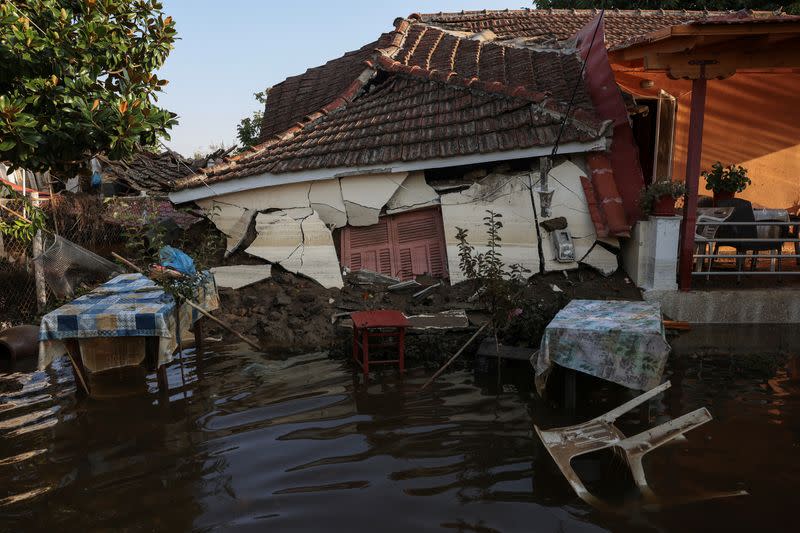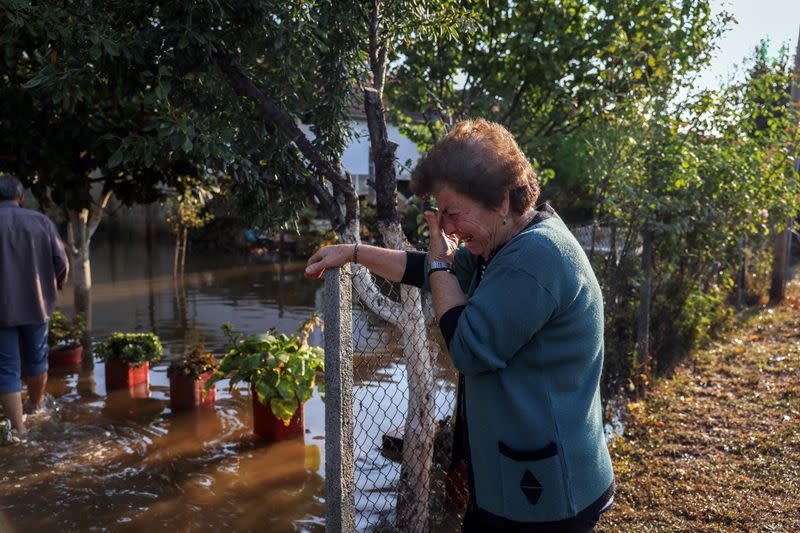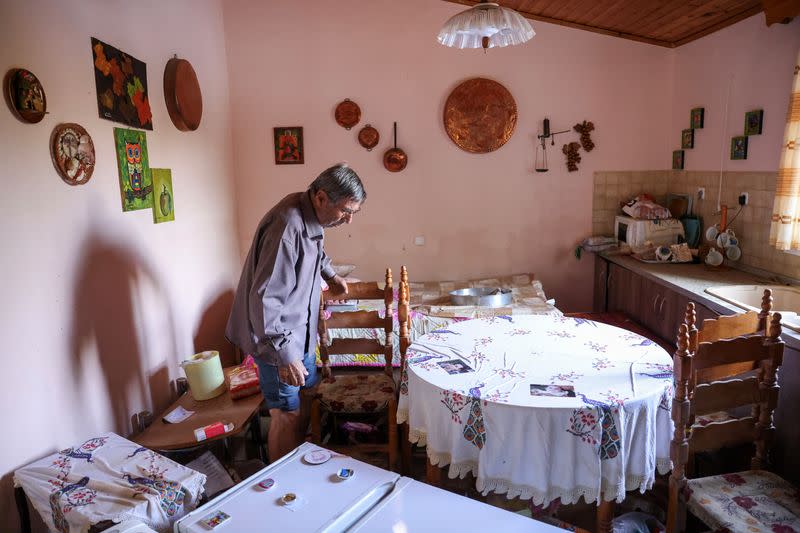Greek rescue teams move into worst-hit flood villages
ATHENS (Reuters) - Rescue teams took people out of floodwaters in inflatable boats and in bulldozers on Saturday as they moved into villages hit hardest by a sweeping rainstorm that killed at least 10 people in central Greece this week.
Storm Daniel, which meteorologists said was the worst to hit the country since records began in 1930, pummelled Greece for three days from Tuesday, leaving a trail of ruin after a record summer heatwave that had touched off huge wildfires.
Homes were swept away by torrents, bridges collapsed, roads were destroyed, power lines fell and crops in the fertile Thessaly plain were wiped out.
Authorities, who have struggled to evacuate people from flooded areas, raised the death toll to 10 people on Friday afternoon. Four people have been reported missing, they said.
On Saturday, rescue teams were moving into villages near the city of Larissa and close to the River Pineios.
The fire brigade has so far evacuated 2,806 people across the country. In Thessaly region, many residents were airlifted from the rooftops of submerged homes on Friday and Saturday.
An 80-year old fisherman with a small blue fishing boat helped evacuate at least 15 people in a village in the area of Karditsa, one of the worst-hit areas, according to iefimerida website on Friday night.
"I'm an old boatman, I have experienced another four floods in the village. This was the worst," he told media.
Authorities shut the national highway connecting Athens with the northern city of Thessaloniki on Saturday due to the floods.
The deluge in Greece followed a huge wildfire in the north and the country's hottest summer on record. Scientists say the country is on the front line of climate change, with freak weather incidents increasingly common.
Extreme weather events have struck across the globe in recent weeks, with floods in Scandinavia, southeast Europe and Hong Kong. In contrast, India had its driest August since records began more than a century ago.
(Reporting by Stamos Prousalis, Renee Maltezou, Lefteris Papadimas and Michele Kambas; Editing by Frances Kerry)





